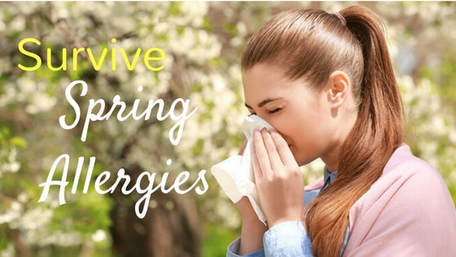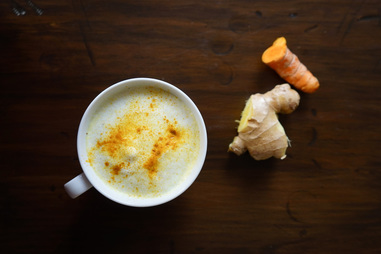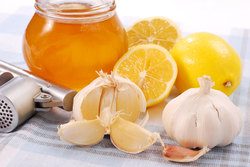
It is that time of year again- sneezing, watery eyes, headaches, sniffles, and bloodshot eyes. Yup, allergy season has begun early this year!
A naturopathic doctor, such as myself, can help guide you though the allergy remedies and what may work for you. There are treatments to address the symptoms, but it is also important to have a treatment strategy that addresses overall health and balances the immune system. For example, diet is a big part of this, eating a whole food based diet high in vegetables, fruits, and healthy fats and avoiding your food allergens can help your seasonal allergies as well.
So what are some of the treatments that you can try for seasonal allergy relief?
Lifestyle changes
Avoiding exposures to pollens when they are at their worse – checking the pollen counts and plan to go for walks or runs when the counts are low, or in the evenings. Most plants pollinate early to mid morning hours, so its better to head outside later in the day. Take showers and change your clothes to reduce the pollens you are carrying on your self. Change pillow cases every few days.
Spring cleaning
It’s also important to consider what, exactly, might be triggering symptoms inside your home, and then combat common offenders such as dust mites, pollen and mold:
• Use a diluted bleach solution to clean and denature mold in basements and garages and on old patio furniture and the like, making sure to thoroughly dry all objects to prevent further growth.
• Consider a good HEPA air filter and change it at least every two to three months to help prevent pollen and dander from being recirculated in your house.
• Launder bed linens at least once a week in 130-degree water (which is what it takes to kill dust mite eggs). And bear in mind that the default “hot” setting on many washing machines doesn’t reach that temperature, so you may have to adjust your hot water heater.
Saline Nasal Rinses
Using a daily neti pot or salt-water rinse can really help to clear out the nasal passages and wash out the pollens. If you make the salt-water solution at home, use filtered or bottled water as tap water can contain bacteria.
IV and Injectable Treatments
Injectable and intravenous (IV) treatments can help seasonal allergy symptoms and also help the body to desensitize its reaction to the allergens for a longer term solution.
Myers cocktail and immune supportive IV’s containing B vitamins, Vitamin C, selenium, and other nutrients help the immune system better respond to the allergens.
Herbs and supplements
There are many herbs and supplements on the market that help to a minimize allergy symptoms. Most of these do not have negative side effects such as drowsiness and headaches. But it is best to see a Naturopathic doctor who can recommend which ones you should try.
Vitamin C: Strengthens the immune system and helps to fight off allergens
Quercetin: It is an antioxidant, and anti-inflammatory, it helps to stabilizes mast cells and reduce histamine release- important players the in the allergic response.
Magnesium: an important mineral that most people are low in, it can help wheezing by relaxing the bronchial tubes and is also important for the immune system.
Probiotics: Supporting the gut and making sure there are high levels of good bacteria in the gut is key in sustaining a healthy immune response.
Nettles: Stinging nettle plant extract is a common herb used for allergy relief. It helps to reduce the inflammatory response.
Omega-3 Fatty Acids: Getting a good, clean source of omega 3 fatty acids daily can help decrease inflammation in the body.
With so many options, it is important to have a concise treatment plan that you stick to daily, to support the body continuously through the allergy season.
A naturopathic doctor, such as myself, can help guide you though the allergy remedies and what may work for you. There are treatments to address the symptoms, but it is also important to have a treatment strategy that addresses overall health and balances the immune system. For example, diet is a big part of this, eating a whole food based diet high in vegetables, fruits, and healthy fats and avoiding your food allergens can help your seasonal allergies as well.
So what are some of the treatments that you can try for seasonal allergy relief?
Lifestyle changes
Avoiding exposures to pollens when they are at their worse – checking the pollen counts and plan to go for walks or runs when the counts are low, or in the evenings. Most plants pollinate early to mid morning hours, so its better to head outside later in the day. Take showers and change your clothes to reduce the pollens you are carrying on your self. Change pillow cases every few days.
Spring cleaning
It’s also important to consider what, exactly, might be triggering symptoms inside your home, and then combat common offenders such as dust mites, pollen and mold:
• Use a diluted bleach solution to clean and denature mold in basements and garages and on old patio furniture and the like, making sure to thoroughly dry all objects to prevent further growth.
• Consider a good HEPA air filter and change it at least every two to three months to help prevent pollen and dander from being recirculated in your house.
• Launder bed linens at least once a week in 130-degree water (which is what it takes to kill dust mite eggs). And bear in mind that the default “hot” setting on many washing machines doesn’t reach that temperature, so you may have to adjust your hot water heater.
Saline Nasal Rinses
Using a daily neti pot or salt-water rinse can really help to clear out the nasal passages and wash out the pollens. If you make the salt-water solution at home, use filtered or bottled water as tap water can contain bacteria.
IV and Injectable Treatments
Injectable and intravenous (IV) treatments can help seasonal allergy symptoms and also help the body to desensitize its reaction to the allergens for a longer term solution.
Myers cocktail and immune supportive IV’s containing B vitamins, Vitamin C, selenium, and other nutrients help the immune system better respond to the allergens.
Herbs and supplements
There are many herbs and supplements on the market that help to a minimize allergy symptoms. Most of these do not have negative side effects such as drowsiness and headaches. But it is best to see a Naturopathic doctor who can recommend which ones you should try.
Vitamin C: Strengthens the immune system and helps to fight off allergens
Quercetin: It is an antioxidant, and anti-inflammatory, it helps to stabilizes mast cells and reduce histamine release- important players the in the allergic response.
Magnesium: an important mineral that most people are low in, it can help wheezing by relaxing the bronchial tubes and is also important for the immune system.
Probiotics: Supporting the gut and making sure there are high levels of good bacteria in the gut is key in sustaining a healthy immune response.
Nettles: Stinging nettle plant extract is a common herb used for allergy relief. It helps to reduce the inflammatory response.
Omega-3 Fatty Acids: Getting a good, clean source of omega 3 fatty acids daily can help decrease inflammation in the body.
With so many options, it is important to have a concise treatment plan that you stick to daily, to support the body continuously through the allergy season.



 RSS Feed
RSS Feed